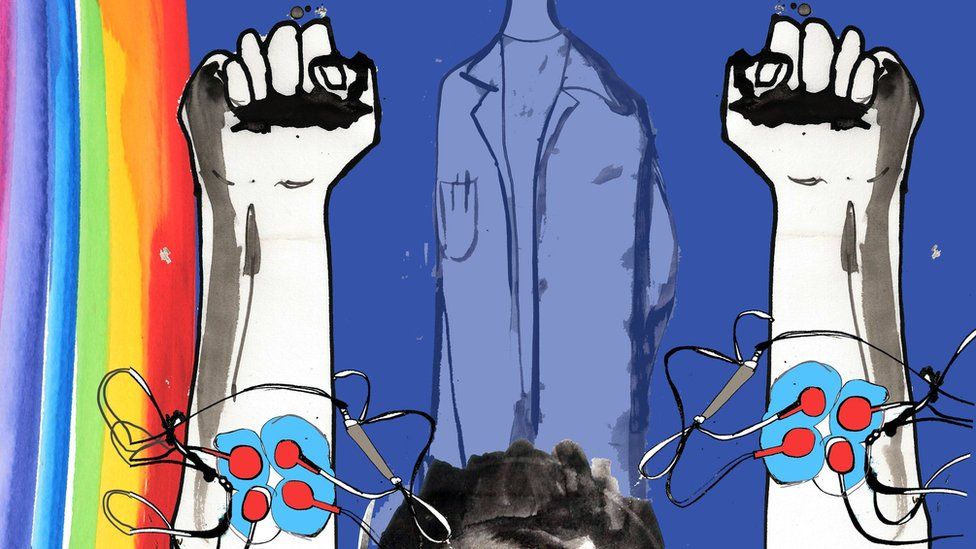 |
| Shock Treatment image / BBC |
It is no secret that sexual orientation is a concern to many religious people. Christians point to texts to support the view that same-sex relations are sinful. Other Christians interpret the same texts differently.
Advances in psychotherapy included strategies for helping people change behavior. However, ethical concerns arise when a treatment causes harm--especially when a treatment produces more harmful effects than beneficial effects. The harmfulness of sexual orientation change efforts is what concerns professional organizations like the APA, which established a policy based on evidence of harm.
In November 2020, a decision in the US state of Florida overturned ordinances aimed at the protection of minors from potential harm caused by attempts to change the sexual orientation of minors by licensed mental health clinicians (APA, 2020 November 22).
Earlier today (16 Dec 2020), BBC news published an article that tells the story of a gay man (now age 74) who underwent an extreme form of change therapy using electric shock in his 20s. He seeks an apology for the treatment, which caused considerable suffering. The article offers details of his pain (e.g., PTSD, job loss) and the response of the university, where the man obtained the treatment.
Interestingly, he tells the story of his relationship with a woman who became his wife and a good friend.
What's also of interest is the university statement about conversion therapy and the current state of such therapies in the UK.
Diverse Christian attitudes toward people who identify as LGBTQ+ is one of the topics in the highly recommended
A House Divided: Sexuality, Morality, and Christian Cultures
Links to Connections
Checkout My Page www.suttong.com
My Books AMAZON and GOOGLE STORE
FOLLOW me on FACEBOOK Geoff
W. Sutton TWITTER @Geoff.W.Sutton
PINTEREST www.pinterest.com/GeoffWSutton
Articles: Academia Geoff
W Sutton ResearchGate
Geoffrey W Sutton

Comments
Post a Comment